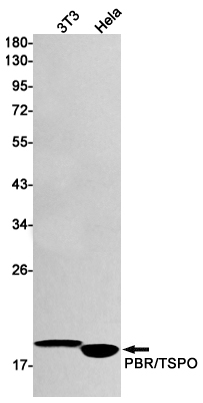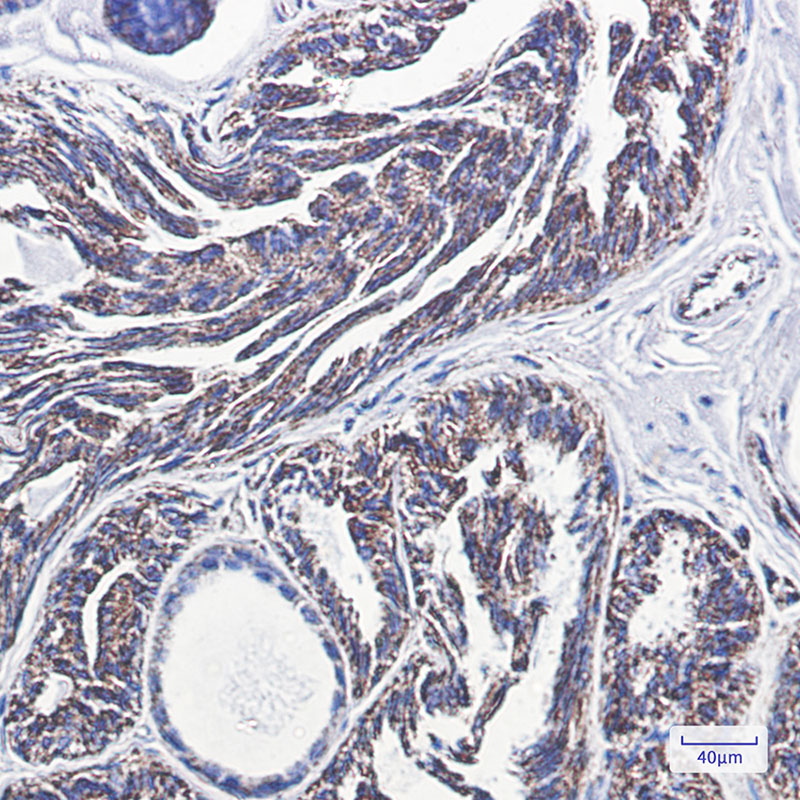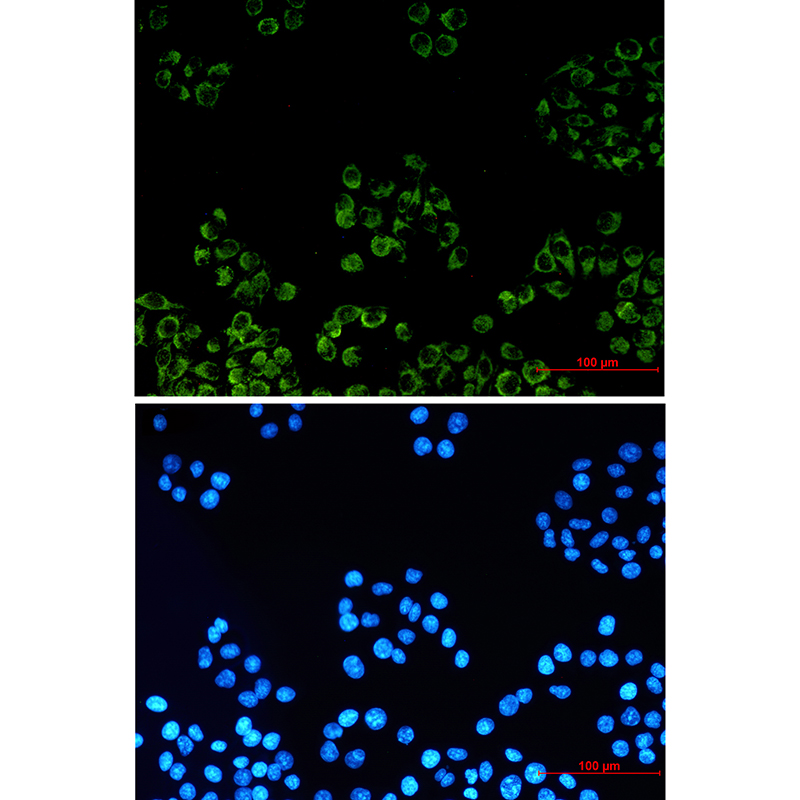


| WB | 咨询技术 | Human,Mouse,Rat |
| IF | 1/20 | Human,Mouse,Rat |
| IHC | 1/50-1/100 | Human,Mouse,Rat |
| ICC | 1/50-1/200 | Human,Mouse,Rat |
| FCM | 咨询技术 | Human,Mouse,Rat |
| Elisa | 咨询技术 | Human,Mouse,Rat |
| Aliases | TSPO; BZRP; MBR; Translocator protein; Mitochondrial benzodiazepine receptor; PKBS; Peripheral-type benzodiazepine receptor; PBR |
| Entrez GeneID | 706 |
| WB Predicted band size | Calculated MW: 11 kDa; Observed MW: 19 kDa |
| Host/Isotype | Rabbit IgG |
| Antibody Type | Primary antibody |
| Storage | Store at 4°C short term. Aliquot and store at -20°C long term. Avoid freeze/thaw cycles. |
| Species Reactivity | Human,Mouse |
| Immunogen | A synthetic peptide of human PBR |
| Formulation | Purified antibody in TBS with 0.05% sodium azide,0.05%BSA and 50% glycerol. |
+ +
以下是关于PBR(TSPO)抗体的3篇代表性文献的简要信息,供参考:
1. **文献名称**:*Translocator protein (18 kDa): Potential relevance for peripheral benzodiazepine receptors in human gliomas*
**作者**:Venneti S 等(2008)
**摘要**:该研究探讨了TSPO抗体在人类胶质瘤中的表达检测,证实其作为肿瘤标志物的潜力,并用于免疫组化分析和分子成像研究。
2. **文献名称**:*Translocator protein as a potential biomarker of neuroinflammation in Alzheimer's disease*
**作者**:Chen MK, Guilarte TR(2008)
**摘要**:综述了TSPO抗体在小胶质细胞活化检测中的应用,提出其在阿尔茨海默病等神经退行性疾病中作为神经炎症生物标志物的价值。
3. **文献名称**:*Neuroinflammation imaging using TSPO PET antibodies: Validation in experimental models*
**作者**:Doorduin J 等(2009)
**摘要**:通过动物模型验证TSPO抗体在PET成像中的特异性,证明其在多发性硬化等神经炎症疾病的无创监测中的应用潜力。
---
**注意**:上述文献信息基于学术常识整理,实际发表年份或作者可能存在差异。建议通过PubMed或Google Scholar搜索关键词“TSPO antibody”、“PBR imaging”等获取最新准确文献。
The peripheral benzodiazepine receptor (PBR), later renamed translocator protein (TSPO) in 2006 to reflect its broader functional roles, is an 18-kDa transmembrane protein primarily localized in the outer mitochondrial membrane. Initially identified in 1977 for its high-affinity binding to benzodiazepines outside the central nervous system, PBR/TSPO gained attention for its involvement in cholesterol transport, steroidogenesis, and cellular stress responses. It is highly expressed in steroidogenic tissues (e.g., adrenal glands, gonads) and activated immune cells, while baseline expression in the brain is low but increases significantly during neuroinflammation, neurodegeneration, or injury.
PBR/TSPO antibodies are critical tools for studying its expression, localization, and function. They enable detection in immunoassays (e.g., Western blot, immunohistochemistry) and facilitate research into diseases like Alzheimer’s, Parkinson’s, and cancer, where PBR/TSPO is upregulated. These antibodies also aid in developing diagnostic imaging probes, as PBR/TSPO ligands are used in PET scans to visualize neuroinflammation. Challenges in antibody development include ensuring specificity due to structural similarities with other mitochondrial proteins and distinguishing between healthy and pathological states. Recent studies focus on isoform-specific antibodies to address splice variants and post-translational modifications, advancing both basic research and clinical applications.
×